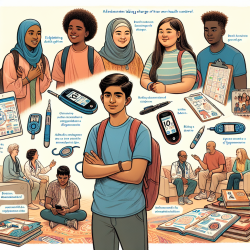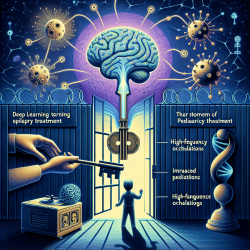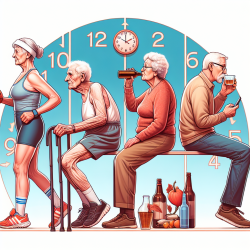Introduction
Type 1 Diabetes (T1D) presents unique challenges for adolescents, who must balance their glycemic control with the demands of daily life. A recent study titled The Self-Management Experiences of Adolescents with Type 1 Diabetes: A Descriptive Phenomenology Study offers valuable insights into the self-management practices of adolescents with T1D in Taiwan. The study identifies key themes that healthcare professionals can leverage to improve outcomes for young patients.
Key Findings and Implications
1. Misconceptions About Self-Management
Adolescents often harbor misconceptions about managing their blood glucose levels. These include beliefs that a fixed insulin dose suffices, that increased physical activity can replace regular exercise, and that reducing starchy foods is enough for glycemic control. Healthcare professionals can address these misconceptions by providing comprehensive education that includes carbohydrate counting and insulin dosage calculations, particularly for popular local foods.
2. Balancing Parental Assistance
The study highlights a conflict between adolescents' desire for independence and their reliance on parental assistance. While parental involvement can enhance glycemic control, excessive interference can lead to frustration and rebellion. Healthcare providers should guide parents in offering supportive, non-intrusive assistance that respects adolescents' growing autonomy.
3. Impact of Schedule Changes
Adolescents face disruptions in their glycemic control regimen due to academic pressures and changes in daily schedules. These disruptions often lead to irregular testing and insulin administration. Schools can play a crucial role by allowing flexible schedules for healthcare activities and by educating teachers about the needs of students with T1D.
4. Motivating Adolescents
Lack of motivation is a significant barrier to effective self-management. Adolescents may not fully grasp the long-term consequences of poor glycemic control. Healthcare professionals can enhance motivation by fostering a supportive relationship, acknowledging improvements, and celebrating successes with their patients.
Recommendations for Practitioners
- Implement individualized education programs that address specific misconceptions about diabetes management.
- Encourage parental involvement that supports adolescents' independence rather than controls it.
- Advocate for school policies that accommodate the healthcare needs of students with T1D.
- Use motivational interviewing techniques to inspire adolescents to take charge of their diabetes management.
Conclusion
The findings from this study underscore the importance of understanding the unique challenges faced by adolescents with T1D. By addressing misconceptions, balancing parental involvement, and motivating adolescents, healthcare professionals can significantly improve self-management outcomes. For those interested in exploring this topic further, the original research paper provides a comprehensive analysis of these issues.
To read the original research paper, please follow this link: The Self-Management Experiences of Adolescents with Type 1 Diabetes: A Descriptive Phenomenology Study.










